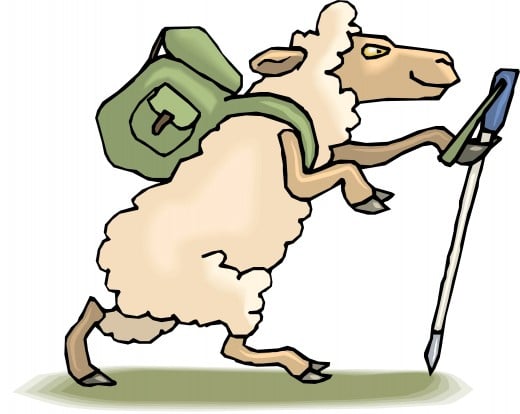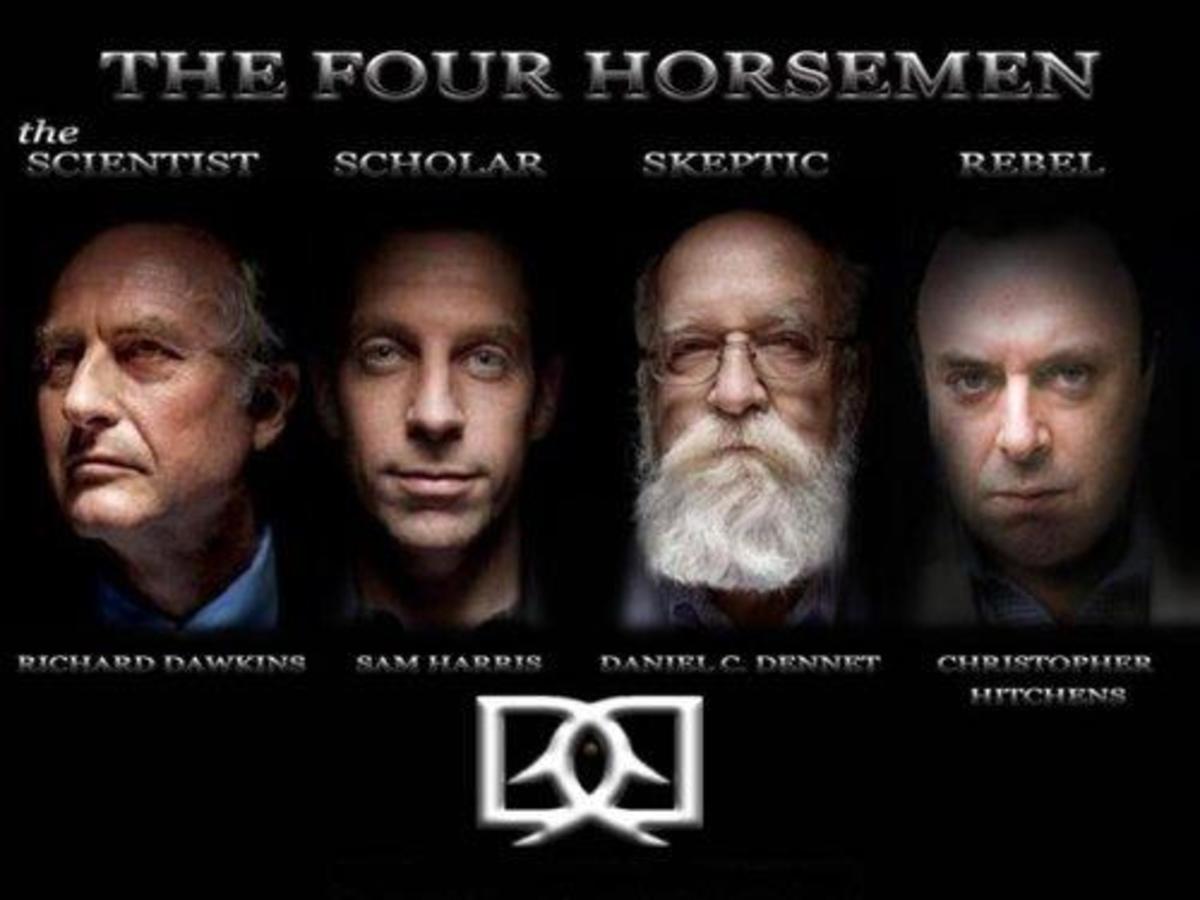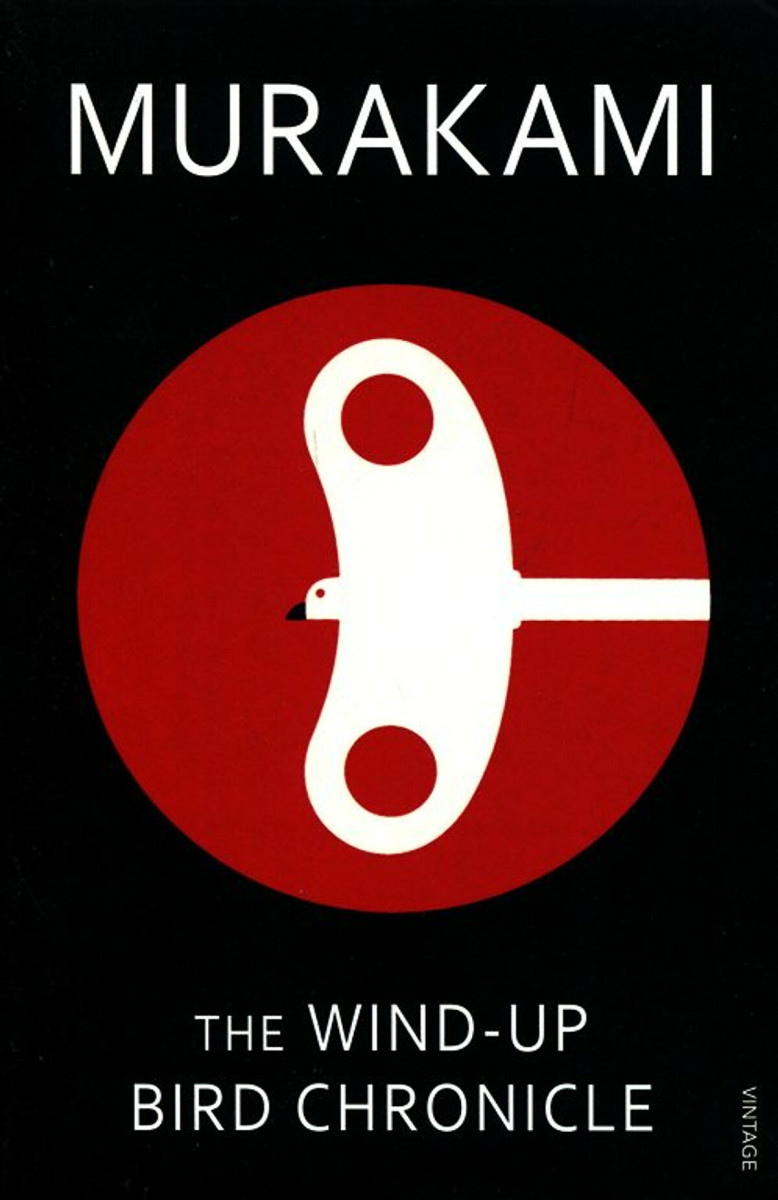Dig The Sheep Fetish: A Review of Murakami's "A Wild Sheep Chase"

Murakami's Paradox: Meaning Through Lack of Meaning
When it comes to pinning down Murakami’s ultimate purpose in composing A Wild Sheep Chase, I believe that no amount of extensive analyzing could possibly produce an entirely satisfactory answer. He is bleakly resigned to what he believes is life’s purposelessness, and he does his utmost to inflict upon his readers the same bald sense of spiritual barrenness.
Deeper philosophical questions of existence are explored through the friendship between the hero Boku and an individual known only as ‘the Rat’. Both men are perpetual wanderers; lacking a coherent, internal sense of self, they look to external factors—such as their friendship and the concept of passing time—in order to confirm their existence and establish some sort of identity. They eventually arrive at the rather hollow conviction that emptiness and existence are irrevocably entwined; while the mere search for meaning can establish within an individual a temporary sense of purpose, dissatisfaction will inevitably emerge again once the initial goal is believed to be reached. Through the arduous spiritual journey of his characters, Murakami asserts that there is no possible way to obtain fulfillment. At the conclusion of the novel, readers are left with the unsatisfying and rather tragic impression that a concrete definition of meaning can never be found, and that loneliness is what lies at the very core of human existence.
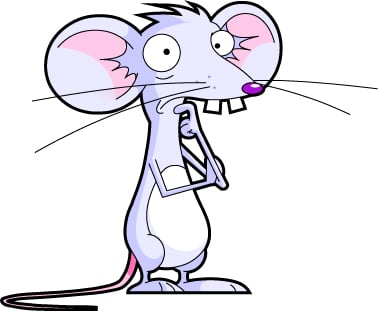
Tick Tock
At the beginning of the book, Boku’s current existence is portrayed as tiresome at the very least. He informs us himself that his story is “ ‘so utterly ordinary, you’d probably doze off in the middle of it’ ” (Murakami, A Wild Sheep Chase, 41). He has no firm definition of self and cannot begin to define what constitutes his identity; he merely confirms the fact that he exists through the passing of time. Yet he confesses that he is incapable of integrating time with his physical existence; to him, it is as if the two are somehow disconnected, almost as if he is an observing phantom rather than a human being that has a place in the world: “For months I’d been stuck, unable to take one step in any new direction. The world kept moving on; I alone was at a standstill” (7-8). He later declares: “As long as I stared at the clock, at least the world remained in motion […] And as long as I knew the world was still in motion, I knew I existed. Not a very consequential existence, but an existence nonetheless” (72).

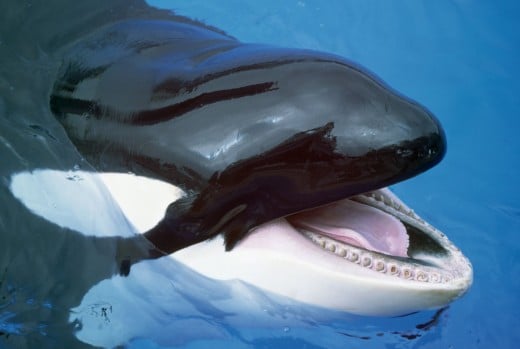
No Self
Boku identity is crippled not only because of his inability to reconcile himself with time, but because of his friendship with the Rat. In order to convey the connection between them, it is necessary to first touch upon one of Boku’s inner monologues—arguably the strangest one that he has in the book. He begins to reminisce about an exhibit he once saw as a child that displayed the severed genitalia of a whale. He finds himself wondering “ what twists of fate, what tortuous circumnavigations, had brought it to that cavernous exhibition room? My heart ached, thinking about it” (30). He initially describes the whale part as “severed forever from the whale, its meaning […] irretrievably lost” (48). Boku’s intensely sympathetic reflections on the whale’s “severed” masculinity suggests his own emotional castration; just as the whale is separated from something that solidified its identity as a whale, Boku, also, has become isolated from the thing that gave him, at least temporarily, a sense of purpose—that is, companionship. A young woman with whom he is briefly involved tells Boku that he is only “ ‘half-living’ ” (47); later in one of the Rat’s letters, he informs Boku that “ ‘when I think of you, I get a little uneasy. Because you remind me of when I was a comparatively regular guy’ ” (91). This suggests the idea that the Rat is perhaps Boku’s other “half”, and Boku can hardly form a solidified identity when such a connection is abruptly taken away from him. The whale simply represents a strong bond, and it is through the memory of this castrated whale that Boku is reminded of the ultimate representation of loneliness, of an existence that is severed from meaning. These reflections on the past, coupled with his inability to reconcile himself to the present passing of time, establishes one of Murakami’s most central themes: namely, that the integration of past and present are closely linked to the integration of identity.

People Be Gone!
The Rat is an interesting contrast to Boku because he is implied to be the half of Boku that is perhaps “living”, the half that has come to terms with what it means to exist. For the Rat, to live is to feel incomplete and no amount of trying will ever bring a man true fulfillment. This “solution” consequently leads the Rat into the arms of seclusion; unlike Boku, who feels empty because of a lingering sensation of lost companionship, the Rat takes satisfaction in banishing himself from the rest of humanity. For example, he describes his current residence as located in an area “that might as well be the end of the world” (94), and states that “ my whole life up to now has been nothing but one big repetition” (95). Here it is apparent that before he entered this state of self-imposed exile, the Rat found his life to be little more than an endless cycle of tedium. He inexplicably prefers to live in an area that feels “like being exiled to Siberia” (95) rather than maintain steady contact with fellow human beings.

A Circular Conclusion
While thriving in this kind of desolate existence, the Rat, like Boku, reflects on time and its relation to his own existence. Unlike Boku, who feels more alienated than ever when he can only confirm his existence through the motion of a clock, the Rat acknowledges that time can never be integrated with existence: “I think I’ve gradually lost my sense of time […] Time keeps on flowing unchanged like a clear river too” (87, 94). He simply accepts his own feelings of displacement, and perseveres in the conviction that time and loneliness will always be the methods used for measuring the purposelessness of existence because there is nothing outside of them by which one can measure existence: “We habitually cut out pieces of time to fit us, so we tend to fool ourselves into thinking that time is our size, but it really goes on and on. Here, there is nothing my size” (94). Furthermore, there is a sort of contentment that arises from accepting the fact that seeking meaning outside of emptiness is futile; to exist is to be alone: “ ‘My life had no meaning […] everyone’s life has no meaning’ ” (337). His wild sheep chase ends with the recognition that no man can ever reach definite fulfillment, although meaning can be temporarily gained through the search itself: “ ‘Even if it’s futile in the end, at least we looked for the sheep’” (158). Both “revelations” scarcely present a solution to the original problem. At the most, the characters are shown to have simply come to terms with their own inadequacy.

Life Has No Meaning. Have a Great Week
This novel is profoundly tragic simply because Murakami provides it with no moral backbone. The story paints a frightening depiction of the darkness of a life that is only defined by purposelessness—and life is indeed empty if there is no standard morality on which to base a concrete definition of existence. The answer that Boku and the Rat propose to the novel’s question of meaning reflects the unfortunate conclusion that will naturally result from the mind of an individual who cannot conceive of anything greater than his own existence. Once any absolute meaning is removed from life, he then grows comfortable with his own despair, and can only arrive at the alternative conclusion that life is little more than a constant state of nothingness.

And Yet...
Despite the numerous issues that I have with this novel, it nevertheless leaves an impression on me. Paradoxically, the very elements about it that I find so irritating are also the things that make it interesting. Despite the fact that the clear meaning of the sheep is never clearly defined, I like how the creature is a tool that the author uses in order to explore the concept of individuality. It gives its victims great worldly influence in exchange for willpower, to such an extent that, once the animal departs from them, they seem unable to properly function without it. This raises the question of what it means to be a human being with free will, and this is a universal theme that is worth exploring (I will admit that Murakami manages to do so in a somewhat competent manner). Murakami explores the fundamental questions of human existence and at least deserves credit for portraying the monotony of a “half-lived” existence, as well as the dryness of a life that is entirely centered on the self or the achievement of power.
*Quotes taken from A Wild Sheep Chase*
